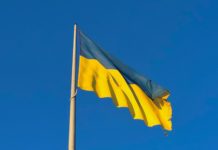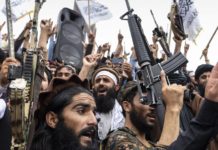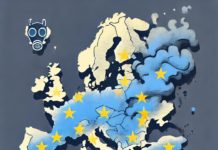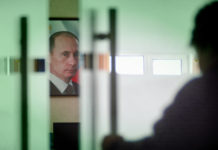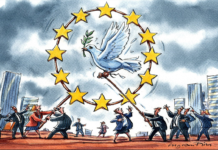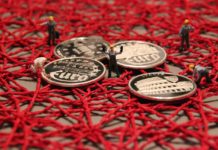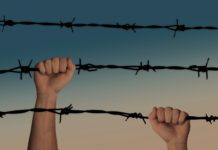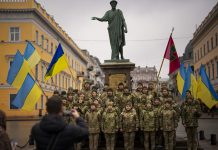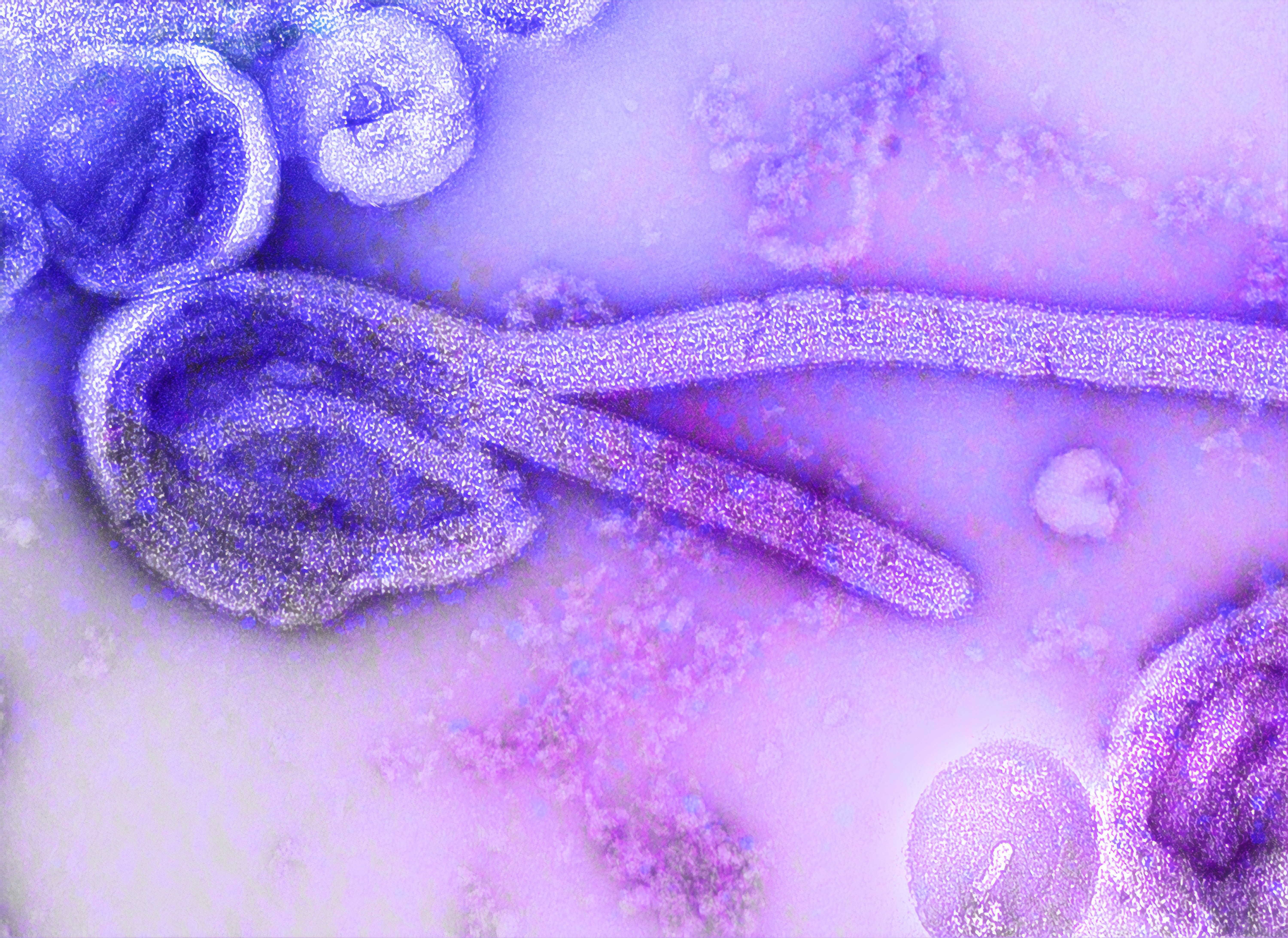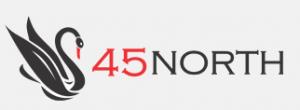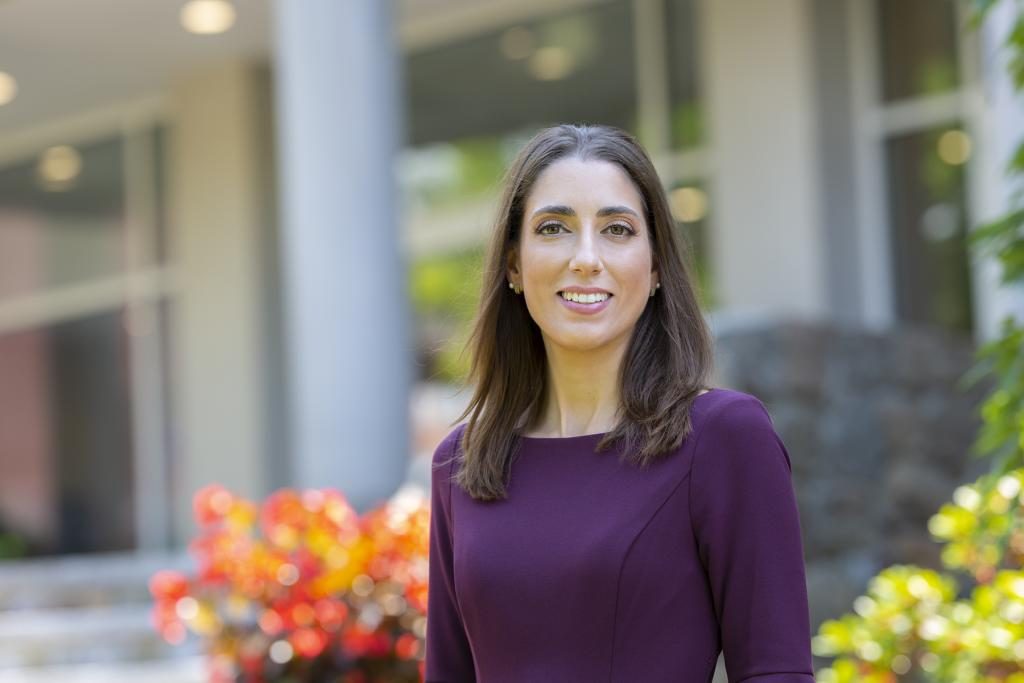
For English, click here. Pentru limba engleză, click aici
Lara Salahi este jurnalist premiat și autor. Este coautoarea cărții Cultura Epidemiei (Outbreak Culture), o carte care examinează fiecare fază a epidemiei de Ebola din 2014-2016, cea mai mare și mortală epidemie de Ebola din istorie, și identifică factorii care au complicat răspunsul la această criză. Prin investigații originale, interviuri critice și jurnalism de modă veche, cartea expune un sistem global de răspuns la epidemii fracturat și propune principiile călăuzitoare pentru a schimba cultura printre echipele internaționale care răspund acestor epidemii.
DT: Sunteți coautorul cărții Cultura Epidemiei: Criza Ebola și Următoarea Epidemie (Outbreak Culture: The Ebola Crisis and the Next Epidemic), în care ați explorat desfășurarea celei mai mari epidemii de Ebola din istorie. Ce ați învățat din acest demers, ceva care ar trebui să avem în vedere și în gestionarea pandemiei COVID-19, în mod special legat de răspunsul guvernamental?
LS: Un lucru fundamental de luat în considerare este faptul că această pandemie va avea efecte de durată, peste numărul de infecții, peste patogen, în sine. Urmările crizei Ebola au fost considerabile. Reconstrucția comunității și sistemelor de sănătate continuă și în ziua de azi, deși epidemia a fost considerată oficial stinsă în 2016. Patogenii expun fiecare vulnerabilitate a sistemelor de sănătate.
În timpul epidemiei de Ebola, noi cei din afara celor mai puternic afectate țări ne uitam la acele comunități și, într-un anumit fel, le criticam pentru că nu respectau mesajele de sănătate publică. De exemplu, în Africa de Vest au fost multe mesaje de sănătate publică în care se spunea oamenilor să nu participe la înmormântări, să practice distanțarea socială, să se izoleze în cadrul unității familiale și totuși, membrii comunității au respins aceste recomandări. Totuși, vedem aceleași respingeri că apar și în cazul COVID-19.
Cei care au supraviețuit Ebola au fost martori la dezintegrarea societală și trauma care vin odată cu o epidemie, pe o perioadă lungă de timp. În anumite părți din Africa de Vest, cele mai afectate de Ebola, au fost înregistrate creșteri în incidența bolilor mentale, inclusiv depresie, anxietate, stres post-traumatic, abuz de substanțe, deci un impact societal. Ar trebui să fim pregătiți să vedem consecințe psihosociale majore ca rezultat a ceea ce trăim acum. Este o nouă lecție învătață, anume că economisim mult mai mulți bani și vieți dacă investim în pregătire, spre deosebire de a ne baza pe răspuns.
DT: Epidemiile și pandemiile sunt uneori prezentate în presă drept lebede negre, dar, în realitate, ele sunt listate de multe agenții de informații, precum și de profesioniști în domeniul medical, drept o amenințare probabilă, de top. De ce credeți că lumea, și în mod particular, Statele Unite, pare a fi prinsă cu garda jos?
LS: Pentru a înțelege și evalua corect nivelul răspunsului nostru la COVID-19, trebuie să înțelegem care a fost întotdeauna cultura gestionării epidemiilor. Guvernele și agențiile au adoptat de fiecare dată cultura răspunsului, în loc să investească în pregătire – nicio țară nu este imună și vedem acest lucru în desfășurare în Statele Unite. Fiecare epidemie din trecut a fost o avertizare că a te baza pe răspuns nu este sustenabil vizavi la ce urmează. Fiecare epidemie din trecut ne-a dat un indiciu că ceva mai răspândit și mai catastrofal urmează, dar în ciuda faptului că am știut asta, investiția în pregătire nu a fost catalogată drept o prioritate.
În investigațiile noastre, am examinat epidemia de Ebola, precum și alte epidemii importante, SARS, MERS, SIDA, dar și unele mai mici, și am descoperit un tipar despre cum răspundem la epidemii, indiferent de patogen.
Tiparul este ceea ce numit cultura epidemiei. Apare printre cei care au sarcina să răspundă la o epidemie în stagiile ei incipiente și poate să fie determinată de frică sau de politică. Uneori, aceste elemente pot deveni atât de copleșitoare încât suprascriu știința și sănătatea publică. În acest context, patogenul devine fundalul pentru a avansa anumite agende, care pot conduce la incoerențe în eforturile de a răspunde la epidemie. Uneori, această cultură ajută la propagarea epidemiei, în loc de a o opri.
DT: Suntem un think tank orientat spre politică externă deci tindem, în mod natural, să analizăm pandemia COVID-19 dintr-un unghi politic. Sănătatea publică este un subiect politic și social major în Statele Unite, în mod special într-un an electoral. Credeți că în urma (sau chiar în timpul) pandemiei am putea să vedem o lege de tip Medicare for All trecută de Congres? Asta ar ajuta la rezolvarea acestei crize, sau a unor viitoare crize?
LS: Ceea ce avem nevoie este leadership puternic – în cartea noastră ne imaginăm un sistem global de guvernanță care acum nu există dar ar trebui să existe. Patogenii nu cunosc granițe, deci trebuie să existe o consistență și cooperare globală deoarece aceasta nu va fi ultima pandemie. Deși este un pic cam târziu pentru a construi un astfel de sistem, chiar în mijlocul unei epidemii, este ceva care trebuie realizat în perioada calmă dintre epidemii. Investiția în pregătire implică crearea unei structuri de guvernanță în stil militar, dedicată securității medicale globale. Acest sistem global centralizat ar împărtăși informații între agenții și regiuni, ar ajuta la clădirea capacităților atunci când nu există o epidemie, dar s-ar asigura că există responsabilitate în timpul unui răspuns epidemic.
Investiția într-un sistem guvernamental mai puternic și într-o stare de pregătire perpetuă a fost ceva ce a fost recomandat după epidemia de Ebola dar nu s-a urmărit până la capăt. Fiecare epidemie din trecut, precum Ebola și acum COVID-19, este o nouă lecție învătață că putem economisi mult mai mulți bani și vieți dacă investim în pregătire, decât în răspuns. La fel ca în crizele din trecut, să sperăm că putem să ieșim din această experiență ca o națiune, ca o comunitate globală și să spunem „destul”. Trebuie să investim în pregătire continuă, în detrimentul răspunsului.
DT: În ce măsură poate ajuta supravegherea epidemiologică în prevenirea acestor epidemii și ar putea organizațiile de tip new media, precum și jurnaliștii, să ajute în acest efort?
LS: Două măsuri de sănătate publică sunt folosite în general pentru a controla răspândirea unei boli atunci când nu există un tratament sau vaccin. Prima este izolarea oricărei persoane care manifestă simptome sau este confirmat drept bolnav. A doua este identificarea și carantinarea oricărei persoane care a intrat în contact cu o persoană infectată, deci scopul aici este de a câștiga timp pentru testare în masă, identificare și izolare. Cu cât mai repede, cu atât mai bine.
Organizațiile media au un rol în răspândirea mesajelor factuale în ceea ce privește metodele de a împiedica răspândirea bolii. Prin intermediul unor povești cu impact puternic, media poate să împuternicească comunitățile să întreprindă acțiuni. Comunitățile trebuie să se simtă implicate în ruperea lanțului transmisiei, chiar dacă asta presupune schimbarea modului lor de viață, ceea ce poate să fie extrem de inconfortabil din multiple motive.
DT: În final, aș vrea să vă rog să împărtășiți cititorilor noștri o poveste sau interacțiune mai personală pe care ați avut-o cu comunitățile locale care au fost afectate de Ebola, ceva care să ne reamintească de nenumăratele povești individuale nespuse, povești despre durerea și speranța care apar în timpul acestor epidemii.
LS: Cartea noastră scoate în evidență multe povești ale acestor adevărați eroi, echipele de intervenție din prima linie. Lucrătorii din domeniul medical din prima linie, în criza Ebola, aveau o șansă exponențial mai mare de a muri de Ebola față de oricare alt grup. Aceștia au continuat să lucreze în ciuda lipsurilor de echipamente de protecție și a instruirii neadecvate cu privire la prevenirea infectării. Lucrătorii medicali locali cunoșteau comunitatea pe care o îngrijeau mai bine decât oricine altcineva.
În ciuda faptului că erau copleșiți de cazurile de Ebola, un asistent pe care l-am urmărit în Liberia știa numele fiecărui pacient. Chiar și azi își poate aminti pe fiecare după nume și a reținut numele și locația pietrelor funerare a 251 de persoane îngropate la un cimitir local dedicat Ebola. Suntem datori acestor persoane și datorită lor avem o responsabilitate comună de a combate această criză. Trebuie să schimbăm cultura de la a privi epidemiile ca o problemă politică, la a le privi drept o criză umanitară. În primul rând, ar trebui să îi protejăm pe cei care ne protejează pe noi, asigurându-ne că există echipament potrivit pentru această situație și tot ce este necesar pentru acești adevărați eroi, astfel încât să aibă un răspuns adecvat la cazurile de infecție.
Interview with Lara Salahi: We have to shift the culture to regard outbreaks not as a political issue, but as a humanitarian crisis
Lara Salahi is an award-winning multimedia journalist and author. She coauthored Outbreak Culture, a book that examines each phase of the 2014-16 Ebola epidemic, the largest and deadliest Ebola outbreak to date, and identifies the factors that complicated the response to the crisis. Through original research, critical interviews and shoe leather reporting, the book exposes a fractured system of global outbreak response and lays out guiding principles to shift the culture among international responders.
DT: You are the co-author of Outbreak Culture: The Ebola Crisis and the Next Epidemic, where you explore the unfolding of the deadliest Ebola outbreak on record. What have you learned in your reporting about the Ebola crisis that should be taken into consideration in tackling the COVID-19 pandemic, specifically in term of government response?
LS: One major consideration is that this pandemic is going to have lasting effects beyond the infections, beyond the pathogen. The fallout from Ebola was significant. The rebuilding of community and health systems continues to this day, even though the outbreak in the region was formally declared over in 2016. Pathogens expose every vulnerability of health systems.
During Ebola, those of us outside of the hardest hit countries looked at those communities and in some ways criticized them for not complying with health messages. For example, in West Africa, there was a lot of public health messaging about folks not attending funerals, social distancing, the family unit isolation — and community members who rejected that. Yet we still see some of these same rejections taking hold with Covid-19.
Those who lived through Ebola witnessed the societal breakdown and trauma that accompanies an outbreak over a prolonged period of time. In parts of West Africa hardest hit by Ebola, there was an upsurge in the incidence of mental health disorders, including depression, anxiety, post-traumatic stress, substance abuse — so really, a societal impact. We should be prepared to see major psychosocial consequences as a result of what we’re experiencing now.
It’s another lesson learned that we can save much more money and many more lives if we invest in readiness rather than relying on response.
DT: Outbreaks and pandemics are sometimes referred in the media as black swans, but actually they were listed by many intelligence and security agencies, as well as medical professionals, as a top tier and probable threat. Why do you think that the world, and in particular, the United States, seems to be caught off guard?
LS: To understand accurately evaluate our current level of response to COVID-19, we have to understand what has always been the global culture of handling outbreaks. Governments and agencies have time and again chosen to be a culture reliant on response rather than investing in readiness – no country is immune, and we are seeing this play out in real time in the United States. Every past epidemic was a warning that relying on response is not sustainable for what is to come. Every past epidemic has hinted to us that something more widespread and more catastrophic is coming, yet despite knowing, investing in readiness was sidelined as a priority.
Outbreaks are a crucible, a melding of forces brought together under an intense high-stakes pressure-filled environment. The environment is volatile, the situation is oftentimes unclear and rapidly evolving, and the pathogen is life-threatening. The scenario is a test of humanity and our response to unpredictability.
In the course of our reporting, we examined the Ebola outbreak and other major outbreaks around the world – SARS, MERS, AIDS, but also smaller ones — and we found a pattern in how we respond to outbreaks regardless of the pathogen.
That pattern is what we call outbreak culture. It emerges among those who are tasked to respond to an outbreak in its early stages and can be driven by fear or politics – at times these elements can become so overwhelming, it overrides science or public health. In this context, the pathogen becomes the backdrop to advancing agendas, which can lead to inconsistencies in response efforts. And sometimes, this culture helps to propagate the epidemic rather than to mitigate it.
DT: We are a foreign policy think tank so we naturally tend to analyze the COVID-19 pandemic from a political angle. Healthcare is a major political and social topic in the U.S., especially in an election year. Do you think that in the aftermath (or even during) of this pandemic, we might see a Medicare for All style bill passed? Would this help alleviate the crisis, or future crises?
LS: What is needed is a level of strong leadership – in our book, we envision a global governance system that right now does not exist, but needs to. Pathogens know no boundaries, so there needs to be global consistency and cooperation because this is not going to be the last pandemic. While it’s a bit late to kind of set up that system now, right in the midst of an outbreak, it’s something that has to be developed during the quiet period between epidemics. Investing in readiness involves creating a military-style governance structure dedicated to global health security. This global centralized system would share information across agencies and regions, would help build capacity when there is no outbreak but also ensure accountability in the midst of a response.
Investing in a stronger governance system and a state of perpetual readiness was something that after the Ebola outbreak was recommended, but wasn’t followed through. So I think now, if anything, this is a lesson learned that there should be follow-through.
Every past outbreak – Ebola, and now COVID-19 — is another lesson learned that we can save much more money and many more lives if we invest in readiness rather relying on response.
As with past crises, let’s hope that we come from this experience as a nation, as a global community and say ‘enough.’ We need to invest in preparedness, in perpetual readiness, over response.
DT: How much epidemiological surveillance helps in preventing these outbreaks and could new media organizations and journalists help with this?
LS: Two public health measures are generally used for controlling the spread of a disease when there is no effective vaccine or treatment. The first is isolating any who shows symptoms or who is confirmed to have the disease, and the second is to trace and quarantine anyone who has come into contact with the infected person — so the goal here is to buy time to mass testing, tracing, and isolating. The faster the better.
News organizations have a role to play in spreading factual messages for ways to curb the spread of the disease. Through powerful stories, media can empower communities to act. Communities have to feel invested in breaking the chain of transmission, even if that means changing their way of life, which can be incredibly uncomfortable for a variety of reasons.
DT: Finally, I would like to ask you if you could share with our readers a more personal story or interaction you had with the local communities that were affected by Ebola, something that could remind us of the countless untold individual stories of grief and hope that arise from outbreaks.
LS: Our book highlights so many stories of the true heroes in outbreaks: the frontline responders. Frontline health workers in the Ebola response were exponentially more likely to die from Ebola than any other group. They continued to work despite shortages of protective equipment and inadequate training on ways to prevent getting infected. Local health workers knew the community they cared for more than anyone else. Despite being overwhelmed by Ebola cases, one nurse we followed in Liberia knew every single Ebola patient by name. To this day, he can recall each by name, and he has memorized the names and gravestone locations of the 251 people buried at the local Ebola cemetery.
We owe so much to our health care workers and because of them, we have a shared responsibility to combat this crisis. We have to shift the culture to regard outbreaks not as a political issue, but as a humanitarian crisis. We should foremost be protecting our protectors, ensuring that there is the proper equipment and everything that’s needed for the true heroes in this outbreak to be able to adequately respond to cases.
Interviu realizat de Dragoș Tîrnoveanu




